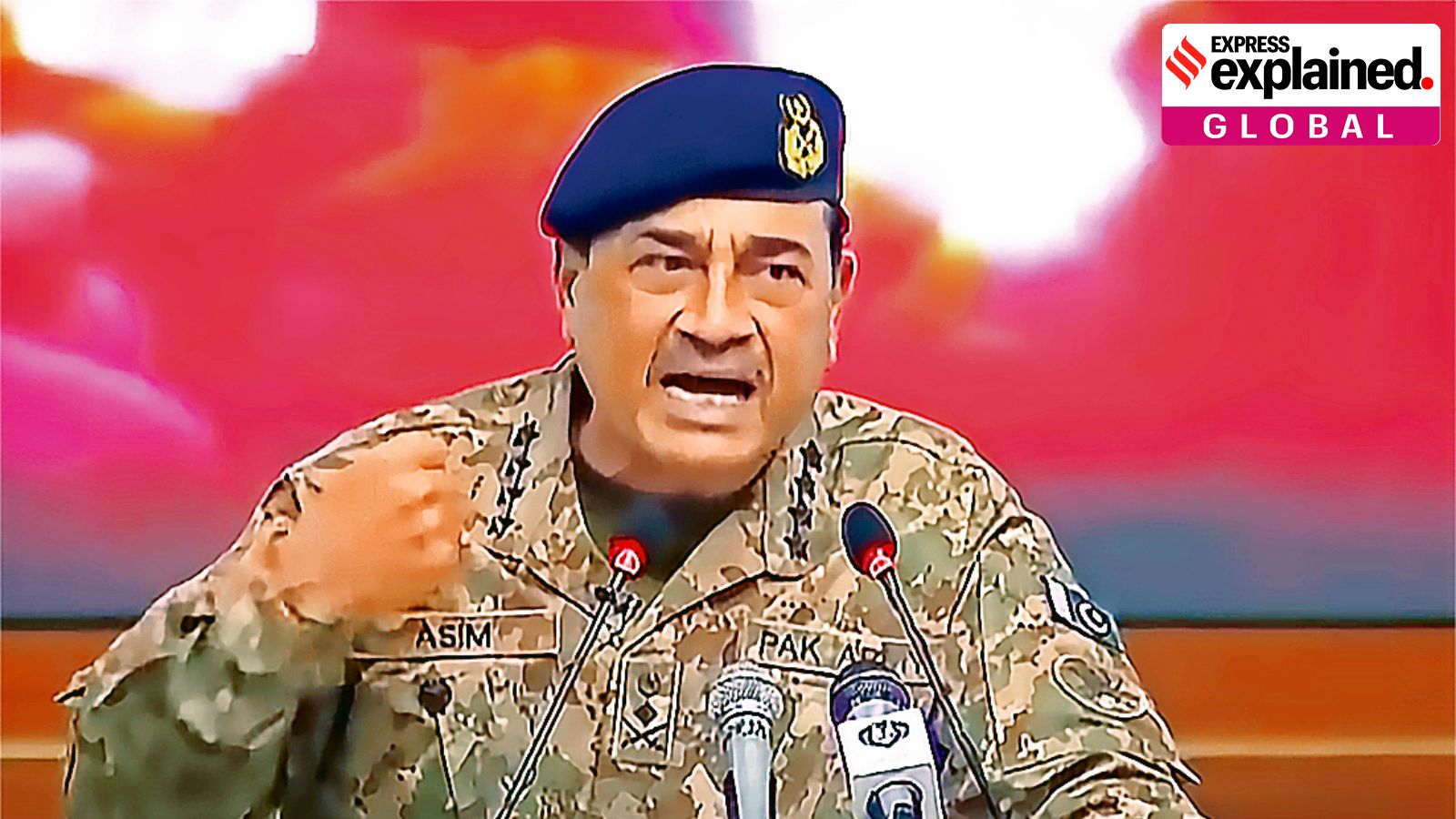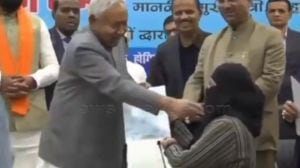Fighting India, overtly and covertly, has historically been the raison d’être of the Pakistan Army. So when Pakistani terrorists shot dead 26 civilians near Pahalgam on April 22, all eyes turned to the Pakistan Army and its proxies.
Only a week ago, Chief of the Army Staff General Asim Munir, the most powerful man in Pakistan, had made a provocative speech which New Delhi views as having encouraged the terrorists.

Calling Kashmir Pakistan’s “jugular vein” — a framing first used by Muhammad Ali Jinnah — the Pak Army chief said in Islamabad on April 15 that Pakistan “will not leave its Kashmiri brothers.”
In February, at an event in Muzaffarabad in Pakistan Occupied Kashmir (PoK), Munir had gone a step further. “Cutting the jugular vein off the body means the end of life,” he had said, adding that “Allah’s… (Muslim fighters) will always prevail based on faith, piety, and jihad in the way of Allah.”
‘The mullah general’
As Pakistani generals go, Munir, 57, is an outlier in more ways than one.
Ramanathan Kumar, who headed the Pakistan desk at R&AW from 2015 to 2020, had earlier described Munir to The Indian Express as Pakistan’s first “mullah general”. While posted as a military attaché in Saudi Arabia, Munir, then a 38-year-old Lieutenant Colonel, had memorised the Holy Quran, a feat that earned him the title of Hafiz-e-Koran.
As the Pak Army chief, Munir freely uses Quranic verses and Islamic theology in his speeches, switching seamlessly from English or Urdu to classical Arabic.
Story continues below this ad
“Till date, there have been only two states which have been built on the foundation of the Kalma… first was the Riyasat-e-Tayyaba (or Riyasat-e-Medina, the first Islamic state established by the Prophet)… and the second, which Allah built 1,300 years later, is your country (Pakistan),” Munir said on April 15.
Clues to Munir’s religiosity lie in his origins. Unlike many of his peers in the top echelons of the Pak Army, he does not belong to a pedigreed military family. Instead, his father, who arrived in Rawalpindi from Jalandhar in 1947, was a school principal and the imam of the local mosque.
Munir received his early education at the Markazi Madrasah Dar-ul-Tajweed, an Islamic seminary in Rawalpindi. He then graduated from the Officers Training School at Mangla in 1986 — not the more prestigious Pakistan Military Academy in Abbottabad — and was commissioned into the 23rd Battalion of the Frontier Force Regiment.
This was at the height of General Zia ul-Haq’s rule. “Munir is the culmination of changes that Zia-ul-Haq set in motion as a promoter of overt religiosity in the (Pak) Army,” Kumar had told The Indian Express in 2022, when Munir was chosen Army chief.
Story continues below this ad
In his magisterial work, The Idea of Pakistan (2004), American scholar Stephen Cohen wrote: “Under Zia, Islamisation went beyond the ban on alcohol… more officers grew beards, and a number of signboards quoting the Quran and the Prophet were placed around the cantonments… [and] evaluation forms included a box for comments on an officer’s religious sincerity.”
Munir, Bajwa, Imran
Unlike many Pakistani generals, Munir has never served in the West or received training in British or American military institutes. He is, however, understood to be a soldier to the core — a reputation that is responsible for his somewhat improbable rise in the Army, as well as him being nearly cast into oblivion in 2019.
Munir was serving as a Brigadier in the Force Command Northern Areas at the Indian frontier, when he caught the attention of then X Corps Commander Lt General Qamar Javed Bajwa. Their relationship would be instrumental in Munir’s eventually succeeding Bajwa as the Army chief.
In early 2017, Munir was posted as Director General of Military Intelligence (DGMI), the Pak Army’s administrative intelligence apparatus that maintains organisational security, and also gathers intelligence on the capabilities of adversaries’ ground forces.
Story continues below this ad
In March 2018, then Major General Munir was awarded the Hilal-e-Imtiaz, Pakistan’s second-highest state honour. In September, he was promoted to the rank of Lieutenant General, before being made the chief of the Inter Services Intelligence (ISI) in October.
Notably, Munir was the ISI chief during the Pulwama terror attack of February 2019, in which 40 Indian security personnel were killed.
But Munir’s stint as ISI chief lasted merely eight months, the shortest ever. In June 2019, Bajwa transferred Munir to the XXX Corps in Gujranwala at the insistence of then Prime Minister Imran Khan. This was apparently after Munir wanted to investigate allegations of corruption against Bushra Bibi, Imran’s wife.
Munir was posted as Commander, XXX Corps until October 2021, when he was appointed as the Quartermaster General of the Pak Army. He succeeded Bajwa as Army chief in November 2022, only three days before he was due to retire.
Story continues below this ad
Today, Imran is in prison. The former Prime Minister has repeatedly accused Munir of harbouring a personal grudge against him, and of even plotting to kill him.
A man fighting crises
Munir leads a military establishment that is currently as unpopular as it has been in a long time.
The sham general elections of 2024, in which Imran’s PTI was not allowed to contest as a party, has dented the Army’s standing with the public — as has Imran’s prolonged imprisonment, and the crackdown against protests by his supporters. Even the Army is divided in pro- and anti-Imran factions.
The insurgency in Balochistan is intensifying, as are the troubles with the Pakistan Taliban and the regime in Kabul. On March 11, Baloch separatists hijacked the Jaffar Express, taking hundreds hostage. The incident eventually led to 64 deaths. Targeted killings of Punjabis, Shias, Sindhis and Chinese nationals have been frequent in Balochistan and Khyber-Pakhtunkhwa.
Story continues below this ad
Munir’s recent statements are being viewed in New Delhi as an attempt to generate support for Pakistan and its army at a difficult time. In his April 15 speech, he said: “Our (Hindus’ and Muslims’) religions are different, our customs are different, our traditions are different, our thoughts are different, our ambitions are different… We are two nations, we are not one nation,” he said. His audience must not “forget this story of Pakistan”, he implored.
An Indian official told The Indian Express that Munir is a quiet, reclusive man, and speaks little. “But when he spoke, he spoke very passionately and with emotion. So he was speaking from the heart, what he actually believed in.”
Post Pahalgam, it would appear that the April 15 speech was a portent of things to come, the desperate gambit of a man struggling to bring together a country in disarray. It is yet to be seen if this will be his last.








































